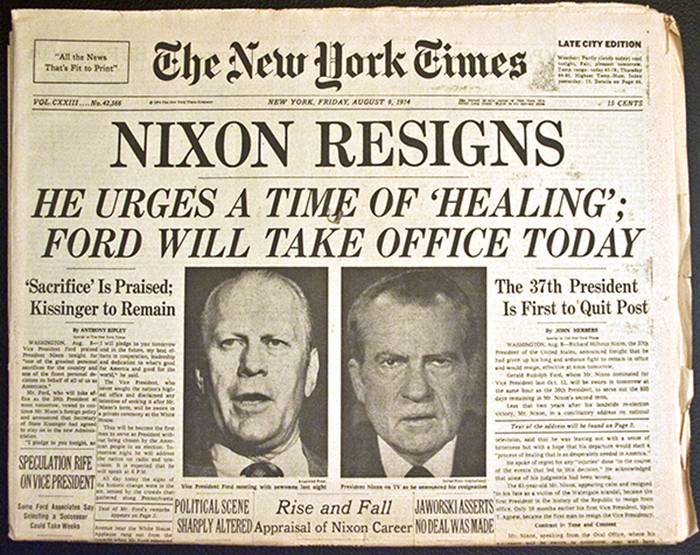
A crime was committed during a presidential campaign. Then came a cover up and other skullduggery. Finally, there was a resignation. Nope, we’re not talking about the trajectory of the Mueller investigation. We’re talking about Watergate–the subject of Slow Burn, a new, eight-episode podcast miniseries from Slate.
Available on iTunes, the web, and other podcast players, Slow Burn zeroes in on the questions: “What did it feel like to live through the scandal that brought down a president? What was that strange, wild ride like?” Below, you can read the introductory words from the podcast’s host, Leon Neyfakh. And then stream the first episode called “Martha,” as in Martha Mitchell, wife of John Mitchell, the Attorney General of the United States under President Nixon.
One day at the end of April 1973, Richard Nixon stood on a porch at Camp David and told John Ehrlichman he wanted to die. Nixon had summoned Ehrlichman, his long-serving domestic policy adviser, to tell him he was being fired from the White House.
Nixon had been dreading the conversation, but he knew it had to be done. The Department of Justice had recently informed the president that Ehrlichman could be facing criminal charges. Nixon felt the walls closing in.
Later, Nixon would tell the journalist David Frost how he gave his old friend the news: “I said, ‘You know, John, when I went to bed last night … I hoped—I almost prayed—I wouldn’t wake up this morning.’ ” According to Ehrlichman, the president then began to sob. It would be 15 months before he resigned from office.
So, that’s how Richard Nixon felt as the Watergate story went from a curious burglary to a national obsession. What was it like for everyone else? That’s the animating question behind my new eight-episode podcast series for Slate, Slow Burn.
Episode 1: Martha
If you would like to sign up for Open Culture’s free email newsletter, please find it here. It’s a great way to see our new posts, all bundled in one email, each day.
If you would like to support the mission of Open Culture, consider making a donation to our site. It’s hard to rely 100% on ads, and your contributions will help us continue providing the best free cultural and educational materials to learners everywhere. You can contribute through PayPal, Patreon, and Venmo (@openculture). Thanks!


https://www.youtube.com/watch?v=AnoQw928TAY
:)